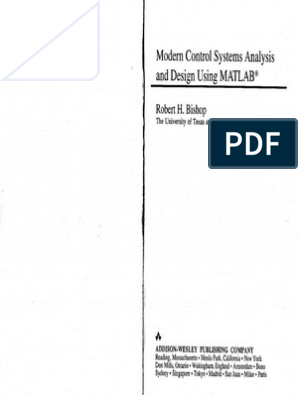0% found this document useful (0 votes)
231 views2 pagesME304 Control Systems Guide
This document outlines the staff, lecture hours, textbook, and course objectives for the ME 304 Control Systems course offered in the spring 2017 semester at Middle East Technical University's Department of Mechanical Engineering. The course is taught in four sections by four professors and assisted by four teaching assistants. Lectures are held on Tuesdays, Wednesdays, and Thursdays from 8:40 AM to 3:30 PM in various classrooms. The required textbook is Modern Control Engineering by Katsuhiko Ogata, and additional references are provided. Course grading is based on two midterms, a final exam, and homework assignments.
Uploaded by
Berkay EkenCopyright
© © All Rights Reserved
We take content rights seriously. If you suspect this is your content, claim it here.
Available Formats
Download as PDF, TXT or read online on Scribd
0% found this document useful (0 votes)
231 views2 pagesME304 Control Systems Guide
This document outlines the staff, lecture hours, textbook, and course objectives for the ME 304 Control Systems course offered in the spring 2017 semester at Middle East Technical University's Department of Mechanical Engineering. The course is taught in four sections by four professors and assisted by four teaching assistants. Lectures are held on Tuesdays, Wednesdays, and Thursdays from 8:40 AM to 3:30 PM in various classrooms. The required textbook is Modern Control Engineering by Katsuhiko Ogata, and additional references are provided. Course grading is based on two midterms, a final exam, and homework assignments.
Uploaded by
Berkay EkenCopyright
© © All Rights Reserved
We take content rights seriously. If you suspect this is your content, claim it here.
Available Formats
Download as PDF, TXT or read online on Scribd
/ 2






























































































